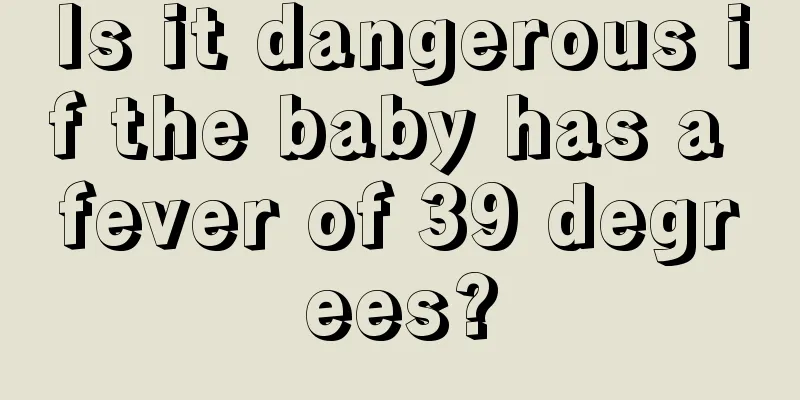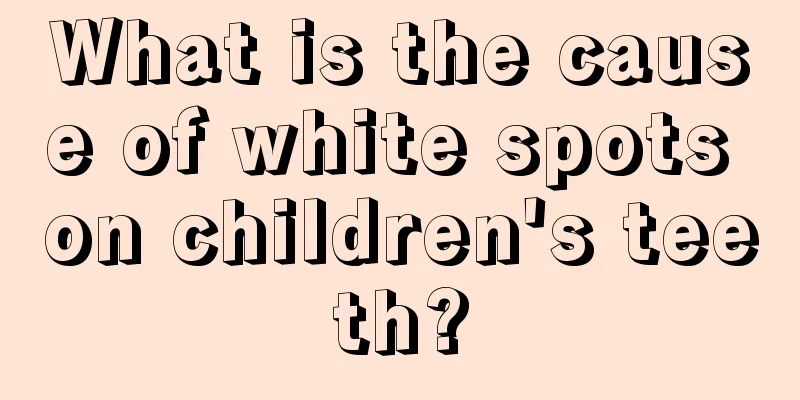What are the early symptoms of stomatitis in children?

|
Most parents are familiar with stomatitis, which is often called herpetic pharyngitis in life. Once a baby suffers from this disease, it is very harmful to the baby's health. Because this disease is similar to hand, foot and mouth disease in the early stage, it is often misdiagnosed, which can easily lead to worsening of the disease and miss the best treatment time. In fact, understanding some symptoms of stomatitis can allow treatment as early as possible. Early symptoms of stomatitis in children 1. First of all, the onset of stomatitis in young children is very urgent, that is, the disease develops relatively quickly, and the common symptoms are high fever, sore throat, drooling, loss of appetite, and often accompanied by pain in the neck, lower abdomen and limbs. In severe cases, vomiting may also occur. 2. Within two days of onset, a small number of grayish-white blisters will appear on the child's oral mucosa, surrounded by red halos. They are generally distributed mainly in the front part of the tonsils, but also in the soft palate, tongue, etc. 3. In the next two or three days, the blisters will slowly turn into shallow ulcers. When the herpes breaks into small ulcers, the child will feel very uncomfortable and will cry. Is stomatitis in children contagious? During the high incidence period of pediatric stomatitis, sick children always flock to the hospital to see doctors, especially those who are already in kindergarten. Since pediatric stomatitis is contagious, especially in kindergartens or other public places where there are many children, the disease can be transmitted to each other. This is why kindergartens are a high-incidence area of the disease as mentioned earlier. The disease is highly contagious and is transmitted through close contact with sick children, or through the mouth or respiratory tract. Therefore, when you come into contact with virus-infected clothes, toys, and tableware, you must disinfect them immediately, because this may lead to infection. If a child is found to have stomatitis in a kindergarten or public place, he or she should be isolated in time to avoid contact with other children and avoid causing more children to become sick. Can children's stomatitis heal on its own? In fact, for young children's isthmus, it can heal itself with proper family care. Generally, if the condition is not serious, it can heal itself within 1-2 weeks. Since the disease is contagious, it is recommended to go out or go to kindergarten after one week of self-healing and observe that there is no recurrence. When a child suffers from stomatitis, make sure the child has enough attention and keep the home ventilated as much as possible. All clothes, toys, quilts, etc. that have come into contact with the virus need to be cleaned and disinfected. Do not let the child eat spicy, greasy, or overly hot food. Encourage the child to drink more water and consume more nutritious, easily digestible liquid or semi-liquid food. It is recommended that the child drink more freshly squeezed juice to supplement vitamins. The above are some of the care required for stomatitis. After proper care, the baby's condition will heal faster and better. |
<<: What should I do if my child gets blisters on his lips?
>>: Chinese medicine formula for conditioning boys
Recommend
What to do if your 2-year-old baby is irritable and angry?
What should I do if my 2-year-old baby is irritab...
What to do if your newborn baby's palms sweat?
In life, many mothers have reported that their ba...
What to do if your baby grinds his teeth severely
Many parents know that it takes a lot of effort t...
When do babies develop a sense of taste?
When a baby is just born, his body is very soft a...
What is the reason for late teething in babies?
In our daily life, many mothers worry about their...
What should I do if my child has phlegm in his mouth?
Having phlegm in the mouth is a very common pheno...
What can children eat to moisten the lungs and relieve cough?
In autumn, the weather is dry and there is less m...
What are the disadvantages of children not eating breakfast?
A day's plan begins in the morning. We need t...
How to deal with herpes in children's throat?
When it comes to throat herpes, everyone may have...
What are some good ways to reduce fever in children?
If a child has a fever, parents will help the chi...
Why does a child sweat when sleeping?
In daily life, young children sometimes sweat on ...
Learning habits that benefit children
1. Pre-class preparation Pre-study allows childre...
Are babies afraid of cold or heat?
Whether babies are afraid of cold or heat is not ...
What is the cause of anal prolapse in children?
The physical health of children is one of the thi...
Causes of perianal abscess in newborns
Perianal abscess in newborns is a relatively comm...









